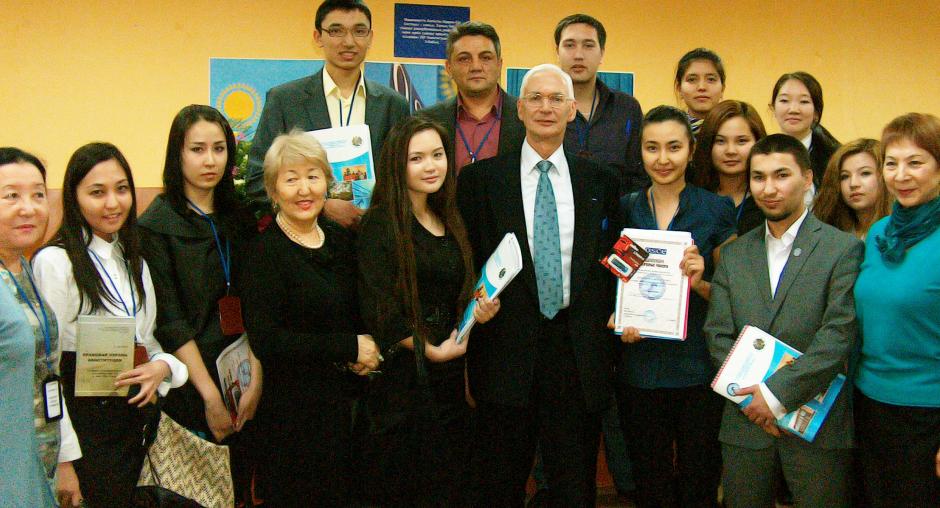OSCE Centre in Astana supports conference for students on International Human Rights Day

ALMATY, 10 December 2010 - Law students and young academics discussed Kazakhstan's international human rights commitments and mechanisms for their implementation at a university conference in Almaty today.
The OSCE Centre supported the discussions held to mark International Human Rights Day.
The conference focused on public participation in decision making, public oversight of law enforcement bodies and the judiciary as well as respect for human rights in the social, economic and environmental fields. Participants discussed how local self-governance and civil society can promote human rights. Voters' rights, access to justice, and the implementation of the Aarhus Convention in Kazakhstan - which allows citizens to access information about and participate in taking decisions concerning the environment - also were on the agenda.
"I am glad that this student conference, which is held during Kazakhstan's OSCE Chairmanship, raised the human rights issues in all three of the OSCE's security dimensions: the politico-military, the economic and environment, and the human. Ensuring respect for human rights and promoting the rule of law will remain high on our agenda after the 2010 OSCE Chairmanship year," Ambassador Alexandre Keltchewsky, the Head of the OSCE Centre in Astana said.
Aizhan Mukhtarova, Vice-President of Caspian Public University, which hosted the event, added: "We hope that our efforts to foster respect for human rights among our students will increase their awareness of the principles of the rule of law, and the role they play in the fight against corruption."
The student conference, hosted by Caspian Public University, will be held annually. It forms part of the OSCE Centre's support to human rights education initiatives in co-operation with national and international non-governmental organizations, universities and state institutions.
